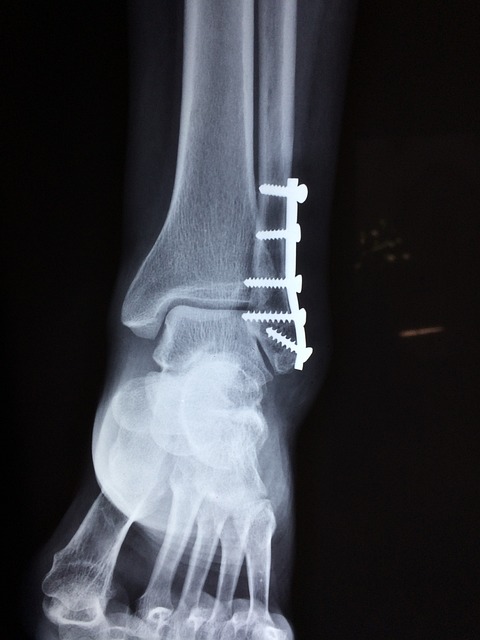Your Guide to Dentures: Restoring Smile & Function
Dentures remain a reliable option for replacing missing teeth and rebuilding oral function. This comprehensive guide explains the different denture types—from full and partial to implant-supported—how they are made, cared for, and what costs to expect. Learn practical tips on fitting, maintenance, and choosing the right denture solution for comfort, appearance, and long-term oral health.

Dentures are removable dental appliances designed to replace missing teeth and the surrounding tissues. Modern dentures aim to restore chewing ability, support speech, and improve facial appearance. Whether you are considering full dentures, partials, or implant-supported options, knowing how they work, how they are made, and how to care for them helps you make better choices for long-term comfort and oral health.
Types of dentures and how they differ
There are several denture types to address different levels of tooth loss and stability needs:
-
Conventional full dentures: Removable prostheses that replace an entire arch (upper or lower) after remaining teeth are extracted and tissues heal. They sit on the gums and rely on suction and fit for retention.
-
Immediate dentures: Placed at the same appointment as extractions so you are never without teeth during healing. Because tissues shrink during recovery, these usually need more follow-up adjustments or relining.
-
Partial dentures: Designed when some natural teeth remain. They use clasps or precision attachments to fill gaps, help maintain proper tooth alignment, and prevent neighboring teeth from shifting.
-
Overdentures: Fit over a small number of preserved natural teeth or roots that have been prepared; retaining roots can improve stability and preserve bone.
-
Implant-supported dentures: Secured to dental implants placed in the jawbone. These offer the greatest stability, improved chewing efficiency, and can help reduce bone loss compared with removable options.
Benefits of choosing dentures
Opting for dentures can bring several practical and aesthetic benefits. They restore the ability to enjoy a wider variety of foods, which supports better nutrition. Replacing missing teeth also helps enunciate words clearly, since tooth structure affects speech patterns.
From an appearance standpoint, dentures replace lost tooth structure and help support facial muscles, reducing the “sunken” look that may accompany tooth loss. This improvement in appearance often leads to greater self-confidence in social situations. Dentures also play a role in maintaining oral structure by preventing remaining teeth from drifting into empty spaces.
How dentures are made and fitted
Creating comfortable, well-fitting dentures is a multi-step process tailored to each patient. It typically begins with a dental exam to evaluate oral health and identify any issues that must be addressed before prosthetic work begins.
Your dentist will take detailed impressions of your mouth that laboratory technicians use to form a custom base. A wax try-in stage allows you and your dentist to evaluate fit, bite alignment, tooth shape, and shade. This is the opportunity to request aesthetic adjustments before the final prosthesis is fabricated in durable materials meant to withstand daily function.
Once the final dentures are delivered, your dentist will make fine adjustments to eliminate sore spots and ensure proper bite. Several follow-up visits are common, especially for immediate dentures, to reline or rebalance the appliance as tissues change during healing. Initial discomfort and increased saliva are normal and typically improve as you adapt.
Caring for your dentures
Good daily care prolongs the life of dentures and maintains oral hygiene:
-
Clean dentures daily using a soft-bristled brush and a non-abrasive denture cleanser or mild soap. Avoid regular toothpaste, which can be too abrasive and scratch denture surfaces.
-
Remove dentures at night and soak them in water or a recommended denture-cleaning solution to keep them from drying out and warping. Never use hot water for cleaning or soaking.
-
Rinse dentures after meals to remove food particles. Clean your mouth and any remaining natural teeth to reduce plaque buildup and protect gum health.
-
Attend regular dental check-ups so your dentist can assess fit, make adjustments, and monitor oral tissues. Poorly fitting dentures can lead to sores, infections, or accelerated bone changes.
Cost overview and what to expect
Denture prices vary by type, materials, geographic location, and additional procedures like extractions or implant placement. Below is a general cost guide:
| Type of Denture | Average Cost Range |
|---|---|
| Complete Dentures (upper and lower) | $1,000 - $3,000 |
| Partial Dentures | $700 - $1,800 |
| Implant-Supported Dentures | $7,000 - $90,000 |
| Immediate Dentures | $1,500 - $3,500 |
| Economy Dentures | $300 - $500 |
Prices, rates, or cost estimates mentioned in this article are based on the latest available information but may change over time. Independent research is advised before making financial decisions.
Economy options are less expensive but may sacrifice longevity, fit, and natural appearance. Implant-supported solutions tend to be more costly upfront but often provide superior stability and can prevent bone loss, which may lower long-term maintenance needs. Many dental insurance plans cover at least part of denture treatment—verify coverage details with your provider.
Choosing the right denture for you
Selecting the best denture depends on your oral health, budget, lifestyle, and personal goals for comfort and aesthetics. Discuss the pros and cons of each option with your dentist, including whether preserving certain tooth roots or choosing implants might be appropriate to improve stability and bone preservation.
Proper care, regular dental visits, and open communication with your dental team will help your dentures remain comfortable and functional for years. With modern materials and careful planning, dentures can offer a natural-looking, effective solution to tooth loss.
This article is for informational purposes only and should not be considered medical advice. Please consult a qualified healthcare professional for personalized guidance and treatment.




